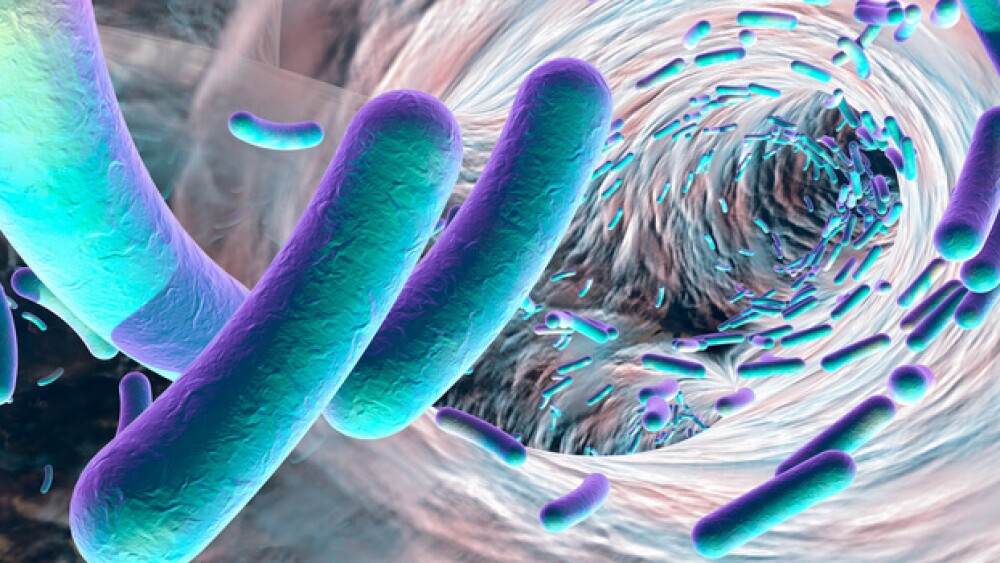Seres Therapeutics announced positive topline data from the pivotal Phase III ECOSPOR III trial of its oral microbiome therapy SER-109 for recurrent C. difficile infection (CDI).
Cambridge, Massachusetts-based Seres Therapeutics announced positive topline data from the pivotal Phase III ECOSPOR III trial of its oral microbiome therapy SER-109 for recurrent C. difficile infection (CDI). The drug demonstrated a highly statistically significant absolute decrease of 30.2% in the percentage of patients who had a CDI recurrence within eight weeks of receiving the drug compared to placebo.
The U.S. Centers for Disease Control and Prevention (CDC) indicate CDI is one of the top three most problematic antibiotic-resistant bacterial threats in the U.S. It kills about 20,000 people in the U.S. annually. CDI is linked with debilitating diarrhea. The most common treatment is vancomycin, but only provides modest effects, which results in many patients having recurrence of infections.
SER-109 is an investigational, oral, biologically-derived microbiome therapeutic. It is made up of a “highly-purified consortia of spore-based commensal bacteria and designed to be manufactured in accordance with Good Manufacturing Practice conditions,” Seres describes.
Seres emphasizes that it is fundamentally different from fecal microbiota transplantation (FMT), another type of therapy for CDI that is being developed, but which have had mixed clinical results and concerns about safety.
“We are extremely pleased with these highly clinically meaningful SER-109 Phase III study results, greatly exceeding the statistical threshold provided by the FDA,” said Eric D. Shaff, president and chief executive officer of Seres. “Based on our prior discussions with the FDA, we believe this trial should provide the efficacy basis for submitting an application or product approval. We look forward to meeting with the FDA as soon as possible to discuss the regulatory path forward with the goal of bringing SER-109 to patients as a first-in-class microbiome therapeutic.”
Today’s announcement is a significant comeback for the company. Four years ago, on July 29, 2016, the company announced interim eight-week results from the Phase II ECOSPOR trial of SER-109 in CDI. The primary endpoint was reducing the relative risk of CDI recurrence at up to eight weeks and the trial failed to hit is primary endpoint.
The data showed CDI recurrence occurring in 44% of patients who received SER-109 compared to 53% who received placebo. There was no difference in the adverse event frequency. At the time, Roger Pomerantz, then-president, chief executive officer and chairman of the company, said, “These are unexpected clinical results in view of the positive data in our prior investigator-sponsored Phase Ib trial, as well as in a wide range of supporting clinical and preclinical data. Specifically, the recurrence rates observed in the overall SER-109 treatment group, in the age stratified subgroups, and in the placebo groups are inconsistent with our expectations.”
The apparent difference in these trial results was an increase in the dosage, which appeared to do the trick.
“We would like to thank all those who participated in this landmark study,” said Lisa von Moltke, chief medical officer of Seres. “Based on these highly positive SER-109 ECOSPOR III results, we believe that this novel microbiome therapeutic candidate could potentially provide a much-needed effective oral treatment option for the approximately 170,000 patients in the U.S. that suffer from recurrent CDI annually. Seres applied a data-driven and scientifically rigorous approach to develop SER-109. The proprietary scientific learnings we have obtained continue to drive our overall R&D efforts and the advancement of our other ongoing microbiome therapeutic programs.”
The therapy was well tolerated, with no treatment-related serious adverse events in the cohort receiving the drug and had a similar safety profile to placebo. The overall rates of patients with adverse events during the eight-week period was similar between the placebo arms and SER-109 arms. The most common adverse events were flatulence, abdominal distention and abdominal pain, which was typically mild to moderate, and seen in both those receiving the drug and the placebo.





